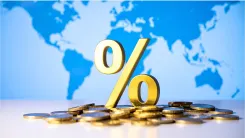Trump Issues Warning of Increased Tariffs Following Canada's Response

Synopsis
Key Takeaways
- Trump threatens increased tariffs after Canada's retaliatory measures.
- Canada to impose 25% tariffs on $155 billion of US products.
- Trudeau challenges Trump's trade strategy in Ottawa.
- Ontario's Premier Ford plans export tax on electricity to the US.
- Mexico and China join Canada in retaliatory plans.
Washington, March 5 (NationPress) US President Donald Trump has cautioned Canada that he will intensify his trade conflict after Prime Minister Justin Trudeau declared retaliatory tariffs on American products.
Trump's statement followed Trudeau's announcement on Tuesday that Canada would impose 25 percent tariffs on $155 billion worth of US goods.
On the same day, President Trump shared on his social media platform, Truth Social, "Please explain to Governor Trudeau, of Canada, that when he imposes a Retaliatory Tariff on the US, our Reciprocal Tariff will immediately rise by a corresponding amount!"
Trump's 25-percent tariffs on imports from Mexico and Canada took effect on Tuesday, prompting Trudeau to announce retaliatory tariffs on over $100 billion of American goods that will begin in 21 days.
In recent weeks, Trump has frequently referred to Trudeau as the "Governor" of Canada while calling for the country to become the 51st state of the US.
Trudeau informed reporters in Ottawa on Tuesday that Trump's "dumb" trade war was driven by a desire "to induce a total collapse of the Canadian economy as it would simplify the annexation process".
"First of all, that’s never going to happen," the Canadian leader asserted.
"However, he can inflict damage on the Canadian economy… but he will quickly discover, as American families will, that this will adversely affect people on both sides of the border."
Canada has indicated it will contest the US measures at the World Trade Organization and through the US-Mexico-Canada Agreement.
"Canadians are reasonable and polite, but we will not shy away from a confrontation," Trudeau stated, indicating he would resign as Prime Minister after the governing Liberal Party selects a new leader on Sunday.
Ontario Premier Doug Ford announced he would impose a 25 percent export tax on electricity sold to the US, with the potential to cut it off entirely if US tariffs continue. In 2023, Ontario supplied power to 1.5 million homes across Michigan, New York, and Minnesota.
In the meantime, Mexican President Claudia Sheinbaum joined Canada and China—which also saw a doubling of duties on goods to 20 percent—in pledging to retaliate against the tariff increases imposed by the Trump administration.
"There is no motive, reason, or justification for this decision that will impact our people and our nations," she remarked during a press conference in Mexico City, indicating she would announce targeted US products on Sunday.
Sheinbaum criticized a White House "fact sheet" released on Monday that reiterated claims of ongoing Mexican drug trafficking due to an "intolerable relationship" with the government, describing the allegations as "offensive, defamatory, and unsupported".
Recently, the Mexican government confiscated over a tonne of the opioid fentanyl, dismantled 329 methamphetamine labs, and extradited 29 drug cartel figures to the US last week.
Trump has also indicated he is taking measures to address fentanyl trafficking across the US's northern border, accusing Ottawa of not doing enough to curb the inflow of the drug and its precursor chemicals into the US. Trudeau responded that the claim was "completely bogus, entirely unjustified, and absolutely false".
Meanwhile, Beijing announced it would retaliate with tariffs of up to 15 percent on various US agricultural exports and broaden the scope of US companies subject to export controls and other restrictions.









